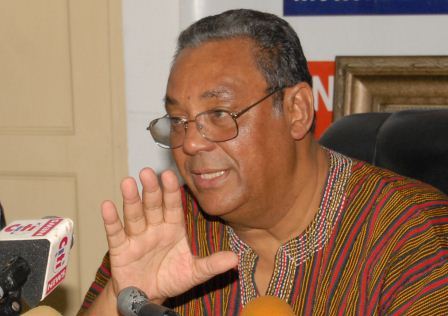NPP, NDC split newly created constituencies
 The New Patriotic Party (NPP) and the National Democratic Congress (NDC) split among them the newly created 45 constituencies with the NPP edging out the NDC with just one seat.
The New Patriotic Party (NPP) and the National Democratic Congress (NDC) split among them the newly created 45 constituencies with the NPP edging out the NDC with just one seat.
Advertisement
While the NPP swept 23 out of the 45 seats, the NDC won the remaining 22 in the keenly contested battle for the new seats.
In 2004, the NPP won 17 out of the 30 newly created seats with the NDC trailing with 12 seats, while an independent candidate picked the remaining seat.
That was the first time the Electoral Commission (EC) had created new seats after the coming into force of the 1992 Constitution which increased the seats in Parliament from 200 to 230. The 45 newly created seats pushes the seats in the legislature to 275.
Overall, the NDC won 148 seats, followed by the NPP with 123. The Peoples National Convention (PNC) has one, with three independent candidates winning their seats.
According to the regional analysis of the new seats won by each party, the NDC and the NPP won two seats in the Western and Central regions.
While the NDC grabbed the Bodi and Bia East seats, the NPP took the Kwesimintsim and Mpohor seats.
In the Central Region race, the Awutu Senya and Assin Central seats fell to the NPP, with Cape Coast North and Gomoa Central sending NDC candidates to the legislature.
The two parties made very strong showings in their strongholds, a reflection of the national pattern.
For instance, in the Ashanti Region, the NPP pounded the NDC into submission by winning seven out of the eight vacant seats. While Obuasi East, Manso Edubia, Atwima Nwabiagya North, Manhyia North, Juaben, Asante Akim North, Ahafo Ano South-East showed their strong allegiance to the elephant, the umbrella managed to win only the Sekyere Afram Plains Constituency. The NDC’s ability to win the seat could be attributed to the presence of a large number of northern settler farmers who vote predominantly for the NDC.
In the Eastern Region, the NPP swept all the five new seats up for representation in Parliament. Akuapim South, Asene/Akroso/Manso, Achiase, Atiwa East and Fanteakwa South endorsed the NPP.
The Volta Region lived up to its ‘World Bank’ tag for the NDC by delivering all four new seats to the party.
New parliamentarians from Akatsi North, Adaklu, North Dayi and Krachi Nchumuru will all be in the sixth Parliament of the Fourth Republic on the ticket of the NDC.
The NPP won the parliamentary battle in the Greater Accra Region by snatching five out of the seven new seats.
Apart from the Bortianor Ngleshie Amanfro and the Ayawaso North constituencies which endorsed NDC candidates, Okaikoi Central, Ablekuma West, Tema Central, Trobu and Anyaa/Sowutuom drapped their seats in Parliament in NPP colours.
In the Brong Ahafo and Northern regions, just like the overall picture, the NDC made very strong impacts. The party won four out of the five new seats in each region, leaving the NPP with one constituency in each region.
In the Brong Ahafo Region, the NDC pulled the seam out of the parliamentary ambitions of NPP candidates in Dormaa West, Banda, Pru West and Sene East. The electorate in Berekum West, however, stuck to the NPP.
Similarly, in Daboya Mankarigu, Salaga North, Yunyoo and Sagnarigu East, the NDC colours will be represented in Parliament. However, for the electorate in Tatale Sanguli, the NPP was the better option.
The NDC maintained its grips on the Upper East and West regions by winning all the three newly created seats in the two regions.
While in the Upper East Region, the party won the Bolgatanga East and Tempane seats, in the Upper West Region, the NDC again picked the Nandom constituency, the only new seat created by the EC.
Prior to the creation of the 45 seats were concerns, particularly from the New Patriotic Party (NPP), over the essence of creating new constituencies in a period very close to the 2012 general election.
The GhnanaTrades Union Congress (TUC) also urged the EC to suspend the creation of the new seats until after the elections. But the EC maintained its position.
It took a coalition of religious bodies in the country to push for consensus in the matter that divided the country on partisan lines.
Story: Seth J. Bokpe
Email:[email protected]



